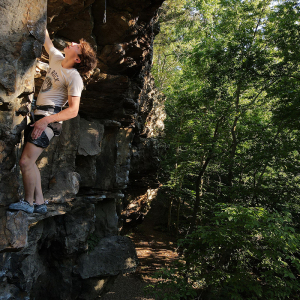THE NEXT LEVEL: What Will You Do After High School?
By Arkansas Next on Monday, October 28, 2024

From on-the-job training that whisks you into the workforce to decade-long doctoral degree plans, we break down each level of higher education and reveal just how long each path will take.
Quickest
EARNED DURING HS
High School Diploma/GED
Straight into the workforce; job options limited.
Work-based Learning
Hands-on experiences completed in high school classrooms; this experience is a boost to resumes and can be a shortcut as they pursue specific careers; a college degree or technical certificate will likely be required still.
START IMMEDIATELY AFTER HS
On-the-Job Training
Straight into the workforce; get paid right away; job options are limited but growing as Arkansas races to keep up with workforce demands.
TAKES UP TO 1 YEAR AFTER HS
Certificate of Proficiency
Three to seven months of training in a specific occupation to earn a certificate of proficiency or technical certificate and enter the workforce. You must complete a 30-credit program, a 24-credit career specialty and at least six credits of general ed.
Certificate of Completion
Typically requires one year and is related to a specific job or career niche.
TAKES UP TO 1 YEAR AFTER HS
Occupation Skills Award
Can be completed with nine to 14 hours of credit (one year max) in a specific technical field to complete; stack multiple skills awards to grow and advance
Quick
SAVES UP TO 2 YEARS OF HIGHER ED
Early College High School
Provide programs for high school students to enroll in college courses early and earn up to 60 credit hours by the time they graduate high school; generally a separate campus from the high school; shortens time spent at a two- or four-year school and saves money.
TAKES UP TO 3.5 YEARS AFTER HS
Dual-Credit in High School
Shortens length of time in college; students can earn college credit that is equivalent to one or more semesters of college coursework; can be used towards a two-year or four-year degree.
TAKES 2-4 YEARS AFTER HS
Certified Technical Education (CTE)
Career-specific pathways for students to learn and train during high school; students earn certifications and credentials, and take part in internships through strategic partnerships with businesses in their community; goal is to get students career-ready while earning their high school diploma to help meet Arkansas job demand/workforce needs; two-year and four-year degrees often still required but CTE programs offer a fast track to real-world experience, ultimately creating a shortcut to a future career.
TAKES 2 YEARS AFTER HS
Associate Degree
Can be completed in two years for a full-time student, or up to four years for a part-time student. The average community college tuition in Arkansas is $7,500 for in-state students.
Average
TAKES 2-3 YEARS AFTER HS
Transfer Degree
Complete the first two years of a four-year bachelor’s degree program at a community college to save money on tuition; transfer credits earned at the two-year school to the desired four-year college and finish the degree plan.
TAKES 4+ YEARS AFTER HS
Bachelor's Degree
Typically completed in four years at a college or university; often dubbed the traditional route; can take longer than four years if a student is part-time.
Military Route
A great option if you want to want your college expenses paid for with little to no debt, while serving your country in the military.
Long
TAKES 6-8 YEARS AFTER HS
Master's Degree
After graduating with your four-year undergraduate degree, you can apply for master’s programs to further your higher education. This can open many doors for your future career, and some bachelor’s degrees require a master’s to enter the specified workforce.
TAKES 8-9 YEARS AFTER HS
Doctoral Degree
What you’ll need if considering a career as a doctor, lawyer, professor, education administrator, historian, statistician, anthropologist, etc.; costly degree programs that lead to lucrative occupations; the average cost of a doctorate degree from a public university is $105,900 in the U.S.*
TAKES 9-16 YEARS AFTER HS
Medical Residencies
Add three to seven years after medical school.
Medical Fellowships
Add one to three years after residency.
Board Certification
Add four years after residency.
Sources: univstats.com, educationdata.org














